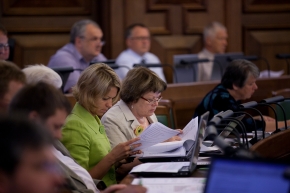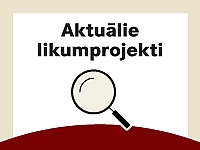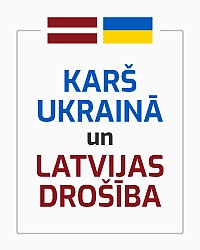 Galerija
Galerija
On Thursday, 14 July, the Saeima adopted in the final reading amendments to the Law on Institutions of Higher Education that will introduce several important changes in regulations concerning the activity of institutions of higher education; these changes are aimed at improving the quality of education. The Law sets forth stricter rules for developing and licensing a study programme and for selecting the academic staff.
In order to found an institution of higher education, it will now be necessary to hire 30 persons with doctoral degrees instead of 15, and at least 5 persons should have a doctoral degree in a field that offers a study programme.
The Saeima has also decided that at least 40% of persons elected to academic positions in institutions of higher education should have doctoral degrees. This indicator should reach 50% in academies, and 65% in universities. Currently, 50% of the faculty in universities must have a doctoral degree. This requirement will go into effect on 1 September 2013.
As of 1 September 2014, at least 5% of the academic staff of each institution of higher education will have to be foreign visiting professors, visiting associate professors, visiting docents and visiting lecturers who have held an academic position at an EU-accredited institution of higher education outside Latvia during the previous five years.
The amendments will also make students work harder because full-time study programmes will consist of 40 working hours per week.
The Law sets forth that each institution of higher education should be able to ensure commitments for students who study in its study programmes in the amount of at least LVL 500,000. This amount is twice as high as the previous amount. The amendments also significantly raise the value of movable and immovable property necessary for the activities of an institution of higher education from LVL 750,000 to LVL 2 million.
The amendments delete from the Law the provisions on the Administration of Institutions of Higher Education and Colleges. The relevant institution of higher education or college will now be in charge of the Diploma Register.
The Law sets forth that the main decision-making bodies of an institution of higher education will be the constitutional assembly, the senate, the rector and the academic arbitration court. The amendments delete the audit commission from this list. The constitutional assembly will be elected by secret ballot by the academic staff, students and non-academic staff of the institution of higher education.
In accordance with the Law, Latvian citizens and non-citizens, as well as foreigners, will have the right to study at institutions of higher education or colleges. In order do so, one will need a document attesting that the applicant’s previous education is recognised in Latvia and that it meets the requirements of the study programme in Latvia.
The right to study at institutions of higher education or colleges is equally granted to Latvian citizens and non-citizens; to citizens of the European Union, the European Economic Area and the Swiss Confederation; and to long-term residents of the European Community with valid residence permits.
The amendments allow extracurricular studies. Individuals will have the right to sign up for specific study modules or study courses as external students. External students will have the right to do the coursework, to request the institution of higher education or college to determine whether the amount of work done meets the requirements of all or part of the study programmes and to receive credit points accordingly.
The Law also defines the role of study courses and study modules. Study courses will make it possible to achieve the results of the totality of studies within study programmes. As for study modules, institutions of higher education will have an option to develop them in structuring the study programmes, increasing transparency, creating flexible learning paths, fostering professional orientation of students, as well as making the modules compatible with lifelong learning.
Institutions of higher education and colleges will have the right to develop joint study programmes in cooperation with Latvian or foreign partner institutions and to take part in their implementation.
Institutions of higher education and colleges will have the right to offer preparatory courses for persons who wish to enrol in a study programme.
According to the amendments, institutions of higher education will be able to own immovable property transferred to their possession without charge by another derived public person or the state. Institutions of higher education will have the right to make use of the property transferred to their possession by the state for ensuring their functioning and achieving the aims indicated in their constitutions. With the permission of the government, institutions of higher education will have the right to expropriate such property. No permission will be required for property that was transferred to their possession without an indication of the function for which it is transferred.
The Law sets forth that the government will draft each year’s national budget with a provision to raise the financing of studies at the state-founded institutions of higher education by at least 0.25% of GDP until the amount of this financing reaches 2% of GDP. This provision of the Law will come into force on 1 June 2013.
The Draft Law on the Amendments to the Law on Institutions of Higher Education was adopted in the third and final reading, with 54 MPs voting for, 24 voting against, and one abstaining.
The amendments will come into force on 1 August 2011.
Saeima Press Service









